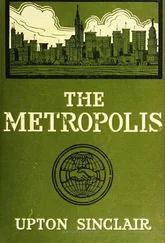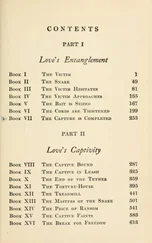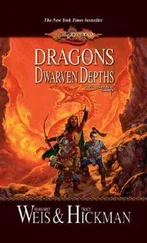Upton Sinclair - Dragons’s teeth
Здесь есть возможность читать онлайн «Upton Sinclair - Dragons’s teeth» весь текст электронной книги совершенно бесплатно (целиком полную версию без сокращений). В некоторых случаях можно слушать аудио, скачать через торрент в формате fb2 и присутствует краткое содержание. Жанр: Историческая проза, на английском языке. Описание произведения, (предисловие) а так же отзывы посетителей доступны на портале библиотеки ЛибКат.
- Название:Dragons’s teeth
- Автор:
- Жанр:
- Год:неизвестен
- ISBN:нет данных
- Рейтинг книги:3 / 5. Голосов: 1
-
Избранное:Добавить в избранное
- Отзывы:
-
Ваша оценка:
- 60
- 1
- 2
- 3
- 4
- 5
Dragons’s teeth: краткое содержание, описание и аннотация
Предлагаем к чтению аннотацию, описание, краткое содержание или предисловие (зависит от того, что написал сам автор книги «Dragons’s teeth»). Если вы не нашли необходимую информацию о книге — напишите в комментариях, мы постараемся отыскать её.
Dragons’s teeth — читать онлайн бесплатно полную книгу (весь текст) целиком
Ниже представлен текст книги, разбитый по страницам. Система сохранения места последней прочитанной страницы, позволяет с удобством читать онлайн бесплатно книгу «Dragons’s teeth», без необходимости каждый раз заново искать на чём Вы остановились. Поставьте закладку, и сможете в любой момент перейти на страницу, на которой закончили чтение.
Интервал:
Закладка:
A windless morning, the sea quite still, and the shore quite close. The course was eastward, and the Riviera glided past them like an endless panorama. Lanny, to whom it was as familiar as his own garden, stood by the rail and pointed out the landmarks to his friends. A most agreeable way of studying both geography and history! Amusing to take the glasses and pick out the places where he had played tennis, danced, and dined. Presently there was Monte Carlo, a little town crowded onto a rock. Lanny pointed out the hotel of Zaharoff, the munitions king, and said: "It’s the time when he sits out in the sunshine on those seats." They searched, but didn’t see any old gentleman with a white imperial! Presently it was Menton, and Lanny said: "The villa of Blasco Ibanez." He had died recently, an exile from the tyranny in Spain. Yes, it was history, several thousand years of it along this shore.
Then came Italy; the border town where a young Socialist had been put out of the country for trying to protest against the murder of Matteotti. Then San Remo, where Lanny had attended the first international conference after the peace of Versailles. Much earlier, when Lanny had been fourteen, he had motored all the way down to Naples, in company with a manufacturer of soap from Reubens, Indiana. Lanny would always feel that he knew the Middle Western United States through the stories of Ezra Hackabury, who had carried little sample cakes of Bluebird Soap wherever he traveled over Europe, giving them away to beggar children, who liked their smell but not their taste. Carrara with its marbles had reminded Ezra of the new postoffice in his home town, and when he saw the leaning tower of Pisa he had remarked that he could build one of steel that Would lean further, but what good would it do?
A strange coincidence: while Lanny was sitting on the deck telling stories to the Robin family, Lanny’s mother and her husband had gone to the cabin of Madame Zyszynski to find out whether Tecumseh, the Indian "control," had kept his promise and followed her to the yacht. The Polish woman went into her trance, and right away there came the powerful voice supposed to be Iroquois, but having a Polish accent. Tecumseh said that a man was standing by his side who gave the name of Ezra, and the other name began with H, but his voice was feeble and Tecumseh couldn’t get it; it made him think of a butcher. No, the man said that he cleaned people, not animals. He knew Lanny and he knew Italy. Ask Lanny if he remembered—what was it?—something about smells in the Bay of Naples and about a man who raised angleworms. Mr. Dingle, doing the questioning, asked what that meant, but Tecumseh declared that the spirit had faded away.
So there was one of those incidents which cause the psychical researchers to prepare long reports. Beauty thought of Ezra Hacka-bury right away, but she didn’t know that Lanny was up on the deck telling the Robins about him, nor did she know how the Bluebird Soap man had cited the smells of the Naples waterfront as proof that.romance and charm in Italy were mostly fraudulent. But Lanny remembered well, and also that the gentleman from Indiana had told him about the strange occupation of raising angleworms and planting them in the soil to keep it porous.
What were you going to make out of such an episode? Was Mr. Hackabury really there? Was he dead? Lanny hadn’t heard from him for years. He sat down and wrote a letter, to be mailed at Genoa, not mentioning anything about spirits, but saying that he was on his way to Naples, planning to retrace the cruise of the yacht Bluebird, and did his old friend remember the drive they had taken and the smells of the bay? And how was the man who raised angleworms making out? Lanny added: "Let me know how you are, for my mother and I often talk about your many kindnesses to us." He hoped that, if Ezra Hackabury was dead, some member of his family might be moved to reply.
X
They went ashore at Genoa, to inspect that very ancient city. They had in Lanny a cicerone who had wandered about the streets during several weeks of the Genoa Conference. A spice of excite ment was added by the fact that he wouldn’t be allowed to enter the country if he were identified. But local officers would hardly know about that old-time misadventure, or cross-question fashionable people coming ashore from a private yacht; they could hardly check every tourist by the records of the Fascist militi in Rome.
No question was raised. Italy was a poor country, and visitors brought much-needed foreign exchange; the richer they were, the more welcome—a rule that holds good in most parts of the world. They engaged three cars and were driven about the town, which is crowded between mountains and sea, and since it cannot float on the latter is forced to climb the former. Ancient tall buildings jammed close together; churches having facades with stripes of white and black marble, and inside them monotonous paintings of sorrowful Italian women with infants in their arms. Before the shrines were wax images of parts of the body which had been miraculously healed, displays not usually seen outside of hospitals. Mr. Dingle might have been interested, but he had a deep-seated prejudice against the Catholic system, which he called idolatrous. Mr. Hackabury had had the same idea.
Lanny showed them the old Palazzo di San Giorgio, where the conference had been held, a dingy and depressing place, in keeping with the results of the assemblage. Lloyd George had made the most inspiring promises of peace and prosperity to the representatives of twenty-nine nations; after which, behind the scenes, the leaders had spent six weeks wrangling over what oil concessions the Russians were to make to what nations. Lanny’s father had been here, trying to get a share; it had been his first fiasco, and the beginning of a chain of them for all parties concerned. Instead of peace the nations had got more armaments and more debts. Instead of prosperity had come a financial collapse in Wall Street, and all were trembling lest it spread to the rest of the world.
XI
All this wasn’t the most cheerful line of conversation for a sightseeing jaunt; so Lanny talked about some of the journalists and writers whom he had met at this conference, and forbore to refer to the tragic episode which had cut short his stay in Genoa. But later, when Irma and Rahel had gone back to the yacht, he went for a stroll with Hansi and Bess, and they talked about the Italian Syndicalist leader who had set them to thinking on the subject of social justice. The young Robins looked upon Barbara Pugliese as a heroine and working-class martyr, cherishing her memory as the Italians cherish that virgin mother whose picture they never grow tired of painting. But the Fascist terror had wiped out every trace of Barbara’s organization, and to have revealed sympathy for her would have exposed an Italian to exile and torture on those barren Mediterranean islands which Mussolini used as concentration camps.
When you talked about things like this you lost interest in ancient buildings and endlessly multiplied Madonnas. You didn’t want to eat any of the food of this town, or pay it any foreign exchange; you wanted to shake its polluted dust from your feet. But the older people were here to entertain themselves with sight-seeing; so, take a walk, climb the narrow streets up into the hills where the flowers of springtime were thick and the air blew from the sea. These gifts of nature were here before the coming of the miserable Fascist braggart, and would remain long after he had become a stench in the nostrils of history. Try not to hate his strutting Blackshirts with their shiny boots, and pistols and daggers in their belts; think of them as misguided children, destined some day to pay with their blood for their swagger and bluster. "Father, forgive them, for they know not what they do!"
Читать дальшеИнтервал:
Закладка:
Похожие книги на «Dragons’s teeth»
Представляем Вашему вниманию похожие книги на «Dragons’s teeth» списком для выбора. Мы отобрали схожую по названию и смыслу литературу в надежде предоставить читателям больше вариантов отыскать новые, интересные, ещё непрочитанные произведения.
Обсуждение, отзывы о книге «Dragons’s teeth» и просто собственные мнения читателей. Оставьте ваши комментарии, напишите, что Вы думаете о произведении, его смысле или главных героях. Укажите что конкретно понравилось, а что нет, и почему Вы так считаете.












